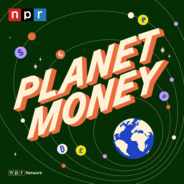Episodes each Wednesday through labor day. Find all the episodes from this season here. And past seasons here. And follow along on TikTok here for video Summer School. In the middle of the twentieth century, China and its neighbors in East Asia were poor, mostly rural economies. China had been wrecked by a brutal civil war. Taiwan became the home of people fleeing from that conflict. Japan and Korea were rebuilding after their own wars. And then in the later half of the twentieth century, they started their comeback. The governments made some explicit choices that unleashed the power of individual incentives and free market forces and lifted millions of people out of poverty. We focus specifically on China and Taiwan during this time, when they showed a burst of economic progress rarely seen on this globe. Why then? Why there? Can other nations copy that? We'll try to find out. This series is hosted by Robert Smith and produced by Audrey Dilling. Our project manager is Devin Mellor. This episode was edited by Planet Money Executive Producer Alex Goldmark and fact-checked by Sofia Shchukina. Help support Planet Money and hear our bonus episodes by subscribing to Planet Money+ in Apple Podcasts or at plus.npr.org/planetmoney.Learn more about sponsor message choices: podcastchoices.com/adchoicesNPR Privacy Policy

Wirtschaft
Planet Money Folgen
Wanna see a trick? Give us any topic and we can tie it back to the economy. At Planet Money, we explore the forces that shape our lives and bring you along for the ride. Don't just understand the economy – understand the world.Wanna go deeper? Subscribe to Planet Money+ and get sponsor-free episodes of Planet Money, The Indicator, and Planet Money Summer School. Plus access to bonus content. It's a new way to support the show you love. Learn more at plus.npr.org/planetmoney
Folgen von Planet Money
355 Folgen
-
Folge vom 14.08.2024Summer School 6: China, Taiwan and how nations grow rich
-
Folge vom 09.08.2024Will the Olympics break breakdancing?For some sports, picking the winner is simple: It's the athlete who crosses the finish line first, or the side that scores the most goals. But for the new Olympic sport of breaking (if you want to be cool, don't call it breakdancing), the criteria aren't quite that straightforward. How do you judge an event whose core values are dopeness, freshness, and breaking the rules? That was the challenge for Storm and Renegade, two legendary b-boys who set out to create a fair and objective scoring system for a dance they say is more of an art than a sport. Over the years, their journey to define the soul of breaking led them to meetings with Olympics bigwigs, debates over the science of dopeness, and a battle with a question many sports — from figure skating to gymnastics — have tried to answer: Can art and sport coexist? This episode was hosted by Jeff Guo and Alexi Horowitz-Ghazi. It was produced by Emma Peaslee and edited by Jenny Lawton. It was fact checked by Sierra Juarez and engineered by Valentina Rodríguez Sánchez with help from James Willets and Cena Loffredo. Alex Goldmark is Planet Money's executive producer. Help support Planet Money and hear our bonus episodes by subscribing to Planet Money+ in Apple Podcasts or at plus.npr.org/planetmoney.Learn more about sponsor message choices: podcastchoices.com/adchoicesNPR Privacy Policy
-
Folge vom 07.08.2024Summer School 5: 250 years of trade history in three chaptersEpisodes each Wednesday through labor day. Find all the episodes from this season here. And past seasons here. And follow along on TikTok here for video Summer School. Trade has come up in all of the episodes of Summer School so far. An early use of money was to make trade easier. Trade was responsible for the birth of companies and the stock market. And trade was the lifeblood of the early United States.Today's episode covers 250 years of trade history in three chapters. We start with one of the founding texts of economics, Wealth of Nations, in which Adam Smith argues a country's true value is not measured in gold and silver, but by its people's ability to buy things that enhance their standard of living. Then we'll watch American politicians completely ignore that argument in favor of protecting domestic industries – until one congressman makes a passionate case for free trade as the means to world peace. And finally we'll follow the trade debate up to the modern day, where the tides of American politics have turned toward regulation.This series is hosted by Robert Smith and produced by Audrey Dilling. Our project manager is Devin Mellor. This episode was edited by Planet Money Executive Producer Alex Goldmark and fact-checked by Sofia Shchukina. Subscribe to Planet Money+ for sponsor-free episode listening in Apple Podcasts or at plus.npr.org/planetmoney.Learn more about sponsor message choices: podcastchoices.com/adchoicesNPR Privacy Policy
-
Folge vom 02.08.2024What to do when you're in a class actionMaybe you got a boring slip of paper in the mail. Maybe you got a spammy-looking email promising you money. Surprise! You're in a class action. If you've done any commerce in the last decade, there's a good chance that someone somewhere was suing on your behalf and you have real money coming your way... if you know what to do.Class action settlements are on the rise. And, on today's show, we're helping decipher the class action from the perspective of the average class member. How do class actions work? Why are these notices sometimes undecipherable? And, what do you stand to gain (or lose) by responding? This episode was hosted by Kenny Malone and Nick Fountain. It was produced by James Sneed with help from Sam Yellowhorse Kesler. It was edited by Jess Jiang and fact-checked by Sierra Juarez. Engineering by Cena Loffredo. Alex Goldmark is Planet Money's executive producer.Help support Planet Money and hear our bonus episodes by subscribing to Planet Money+ in Apple Podcasts or at plus.npr.org/planetmoney. Learn more about sponsor message choices: podcastchoices.com/adchoicesNPR Privacy Policy
